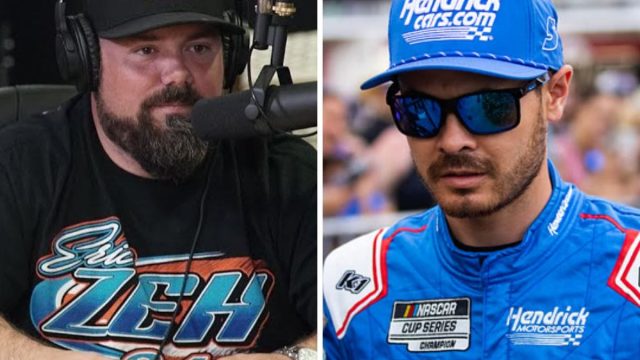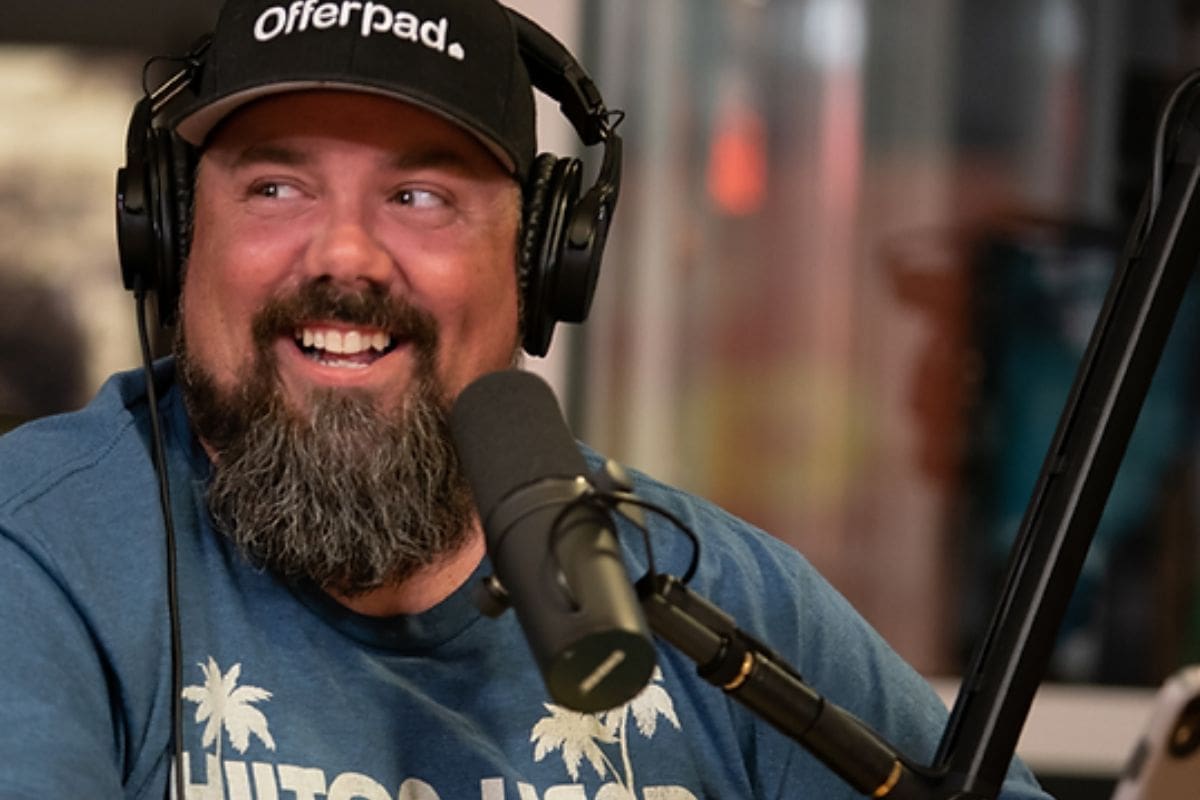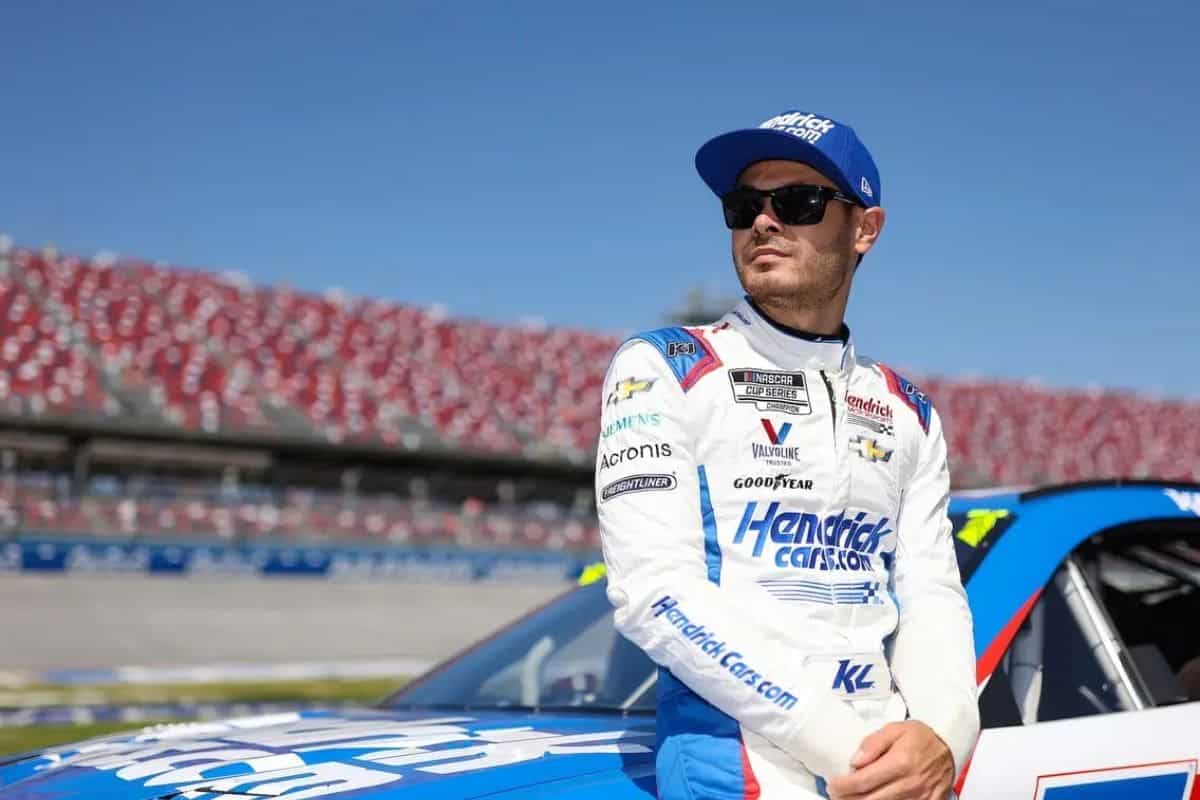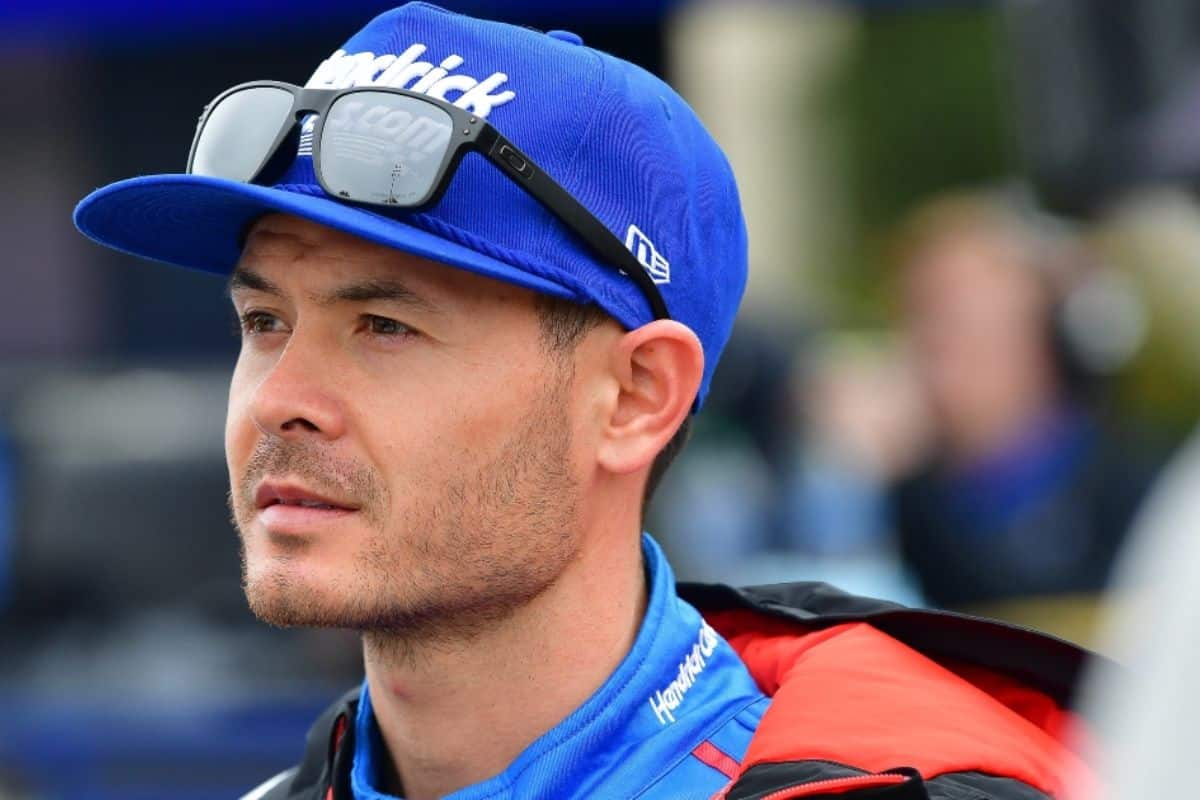Freddie Kraft Denies Playful Response Claim: Freddie Kraft has firmly denied any implication that his remarks during the incident with Kyle Larson were intended as a ‘playful response’, insisting the matter was handled with utmost seriousness. Kraft’s firm denial brings to light the critical emphasis on professionalism within NASCAR, where respect and decency are paramount. The incident, characterized by its intense exchange and the usage of expletives common in radio communication, has sparked varied reactions among drivers and the NASCAR community, prompting a broader conversation about conduct and standards in the sport.
Key Highlights
- Freddie Kraft denies that Kyle Larson’s response to Tyler Monn was playful, emphasizing a serious breakdown in team communication.
- Kraft highlights the importance of professionalism and decorum, rejecting the notion of Larson’s response being lighthearted.
- The incident shows significant tensions and frustration within the team, contradicting any claims of a playful interaction.
- Kraft’s denial underscores the intense and competitive nature of NASCAR, where such exchanges are taken seriously.
- The debate reveals deep-seated issues regarding communication and teamwork in high-pressure racing environments.
Incident Overview and Initial Exchange
The incident began when Bubba Wallace’s spotter, Freddie Kraft, disclosed that Kyle Larson’s expletive-laden response to his own spotter, Tyler Monn, lacked any semblance of teamwork. Kraft remarked that while radio exchanges among drivers and spotters can often become heated, Larson’s reaction stood out as particularly devoid of the collaboration typically expected in such interactions.
This disclosure casts a spotlight on the dynamics within Hendrick Motorsports and raises questions about the communication protocols and interpersonal relations within the team.
Freddie Kraft emphasized that despite the high-pressure sport of NASCAR racing, it is important for drivers to maintain a cooperative relationship with their spotters. The role of a spotter is to provide critical information and guidance, often acting as the driver’s eyes in situations where visibility is limited. Therefore, mutual respect and effective communication are important components of a successful partnership.
Kraft’s comments also highlight the importance of maintaining professionalism and decorum, even in the face of intense competition. His critique of Larson’s response implies that such behavior not only reduces the effectiveness of the spotter-driver relationship but could also potentially impact the overall performance of the team.
Race Incident Details
During the final stage of the 18th Cup Series race at New Hampshire Motor Speedway, Denny Hamlin aggressively utilized extra space in the middle lane. This move saw Hamlin push Kyle Larson wide, effectively seizing the runner-up position. Hamlin’s assertive racing technique was a clear demonstration of his drive to secure a top finish, a common trait in the highly competitive environment of NASCAR.
Despite the aggressive nature of Hamlin’s action, Kyle Larson opted not to retaliate. Larson’s decision to maintain his composure and avoid escalating the situation was notable, especially given the intense competition and demands associated with the latter stages of a Cup Series race. This choice, while showing sportsmanship, did not sit well with everyone on Larson’s team.
Tyler Monn, Larson’s spotter, was particularly displeased with the lack of response from Larson. Spotters play an essential role in NASCAR, providing drivers with real-time strategic advice and positional awareness. Monn’s disapproval highlights the strategic complexities and split-second decision-making inherent in motorsports. The spotter’s perspective often emphasizes the need for assertiveness and strategic responses to aggressive moves by competitors.
Hamlin’s ability to take advantage of the extra space in the middle lane highlights the importance of spatial awareness and opportunistic driving in NASCAR races. Each driver’s choices are influenced by a combination of skill, strategy, and the immediate race context. In this instance, Hamlin’s assertiveness paid off, while Larson’s restraint may have been perceived as a missed opportunity by his team.
Spotter’s Remarks and Larson’s Response
Tyler Monn’s vocal response to Kyle Larson’s composure during the Hamlin incident highlights the tension within Larson’s team as they managed the final stages of the race. During a yellow flag run on Lap 214, Monn did not mince words, delivering a stern critique of Larson’s handling of Denny Hamlin’s aggressive driving. This pointed feedback emphasizes the high-stakes environment and the intense emotions that permeate NASCAR’s competitive landscape.
“He [Denny] runs you like that every time, you know why, because you let it happen.” – (Tyler Monn)
Monn’s blunt admonishment aimed to spur Larson into action, reflecting the expectations placed on drivers to assert their positions on the track. Larson’s retort, an expletive-laden “Shut the f*** up,” revealed the tension simmering within the team. This exchange has since sparked a wider debate among NASCAR insiders, with varied opinions on the appropriateness and impact of such heated communication.
- Frustration: Monn’s harsh critique reflects a noticeable frustration, likely stemming from a perceived passivity in Larson’s driving.
- Intensity: Larson’s terse response highlights the immense intensity drivers face, particularly in high-stakes scenarios.
- Team Dynamics: The exchange shows the complex interplay of support and criticism within a racing team, where blunt feedback is often a double-edged sword.
- Public Scrutiny: The incident’s public fallout shows the scrutiny NASCAR teams operate under, with every word and action potentially fueling broader discussions.
Commonality of Expletive Usage in Radio Communication
Expletive usage in radio communication is frequently observed among NASCAR drivers and their spotters, especially during high-pressure moments. This practice is common and often shows the intense and immediate nature of racing scenarios. According to NASCAR insiders Brett Griffin and Freddie Kraft, the use of the F-word and other strong language is not unusual during these exchanges.
Kraft, in particular, emphasized that such language is often employed without any malicious intent. He cited a similar incident involving Bubba Wallace, where expletives were used in the heat of the moment. This emphasizes the fact that the primary objective of these communications is to convey critical information swiftly and effectively, even if it means resorting to coarse language.
“Me and Bubba had it out had Bristol or something. We were trying to roll around with a flat tire and I was just feeding him information about just get to the end and he’s like, ‘Will you just shut the f*ck up?’ and I said, ’10-4 shutting the f*ck up.’ He [Bubba] said, ‘I just laughed for two laps after you said that.’ You can’t take it to heart.” – (Kraft)
The NASCAR racing demands quick reactions and clear, concise instructions. In such a volatile setting, emotions can run high, leading to spontaneous outbursts. These expletives, while seemingly aggressive, are a part of the vernacular that drivers and spotters are accustomed to. They often serve to highlight the urgency or importance of the message being communicated.
kraft opined that the 2021 Cup Series champion’s reply wasn’t a ”playful response”.
“This [Larson’s situation] did not have the playful shut the f*ck up response. This sounded like it touched a nerve somewhere and maybe it touched a nerve because Kyle knows Tyler might be a little right.” – (Kraft)
Was Kyle Lasron's response to his spotter friendly banter or actual frustration? 😬 pic.twitter.com/ddlUMwlBRW
— Dirty Mo Media (@DirtyMoMedia) June 24, 2024
Driver Reactions and NASCAR Community Response
Driver reactions to the Larson incident have been mixed, with some, like Denny Hamlin, openly supporting the use of expletives as an integral part of the competitive NASCAR environment. Hamlin emphasized that the emotional intensity of racing often leads to heated exchanges, which should be seen as a natural aspect of the sport. His comments came in the aftermath of the controversy at New Hampshire Motor Speedway, where differing opinions on the incident highlighted the division within the NASCAR community.
Denny Hamlin pointed out that he gave Larson enough space at Turn 4, but Larson didn’t take advantage of it. Later, when Hamlin attempted to clear the turn, Larson stayed on the outside line, not leaving much room for Hamlin. This led to their cars making contact, and Larson’s car was pushed wide.
Many argue that raw, unfiltered communication is necessary in a high-stakes sport like NASCAR, where split-second decisions can mean the difference between victory and defeat. Critics are worried that unchecked emotional outbursts could reduce the professionalism and sportsmanship expected at the highest levels of racing.
Hamlin’s remarks pointed to the inherent bias of spotters, like Freddie Kraft, who are inclined to protect their drivers, sometimes at the expense of fairness and objectivity.
“I agree with Kyle Larson. Tyler should shut the f*** up. Does he say that when Kyle squeezes guys up high? Probably not. You know, that’s the thing about spotters is that they are so biased to their guy, and that’s what they need to be at times. We’re racing for a win, there’s drops on our windshield.” – (hamlin)
News in Brief: Freddie Kraft Denies Playful Response Claim
The denial by Freddie Kraft of a ‘playful response’ in the Kyle Larson incident emphasizes the critical importance of professionalism and respect in NASCAR.
This firm stance highlights the necessity for maintaining decorum and teamwork on the track, reinforcing the gravity of the situation.
The incident and subsequent responses highlight the high standards expected of drivers and spotters in competitive racing, showing the broader NASCAR community’s commitment to upholding these values.
ALSO READ: Freddie Kraft Criticizes Ty Gibbs’ “Temper Tantrum” at Sonoma




